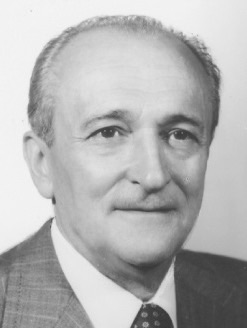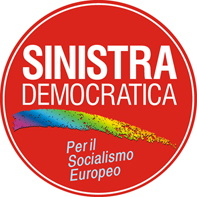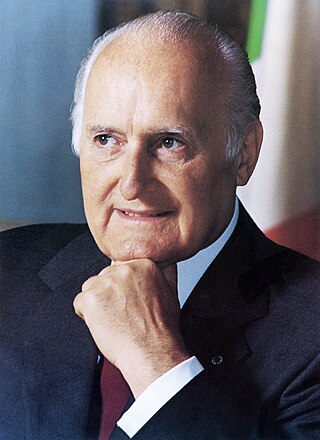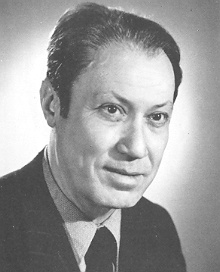
The Democrats of the Left was a social-democratic political party in Italy. Positioned on the centre-left, the DS, successor of the Democratic Party of the Left (PDS) and the Italian Communist Party, was formed in 1998 upon the merger of the PDS with several minor parties. A member of The Olive Tree coalition, the DS was successively led by Massimo D'Alema, Walter Veltroni, and Piero Fassino, and merged with Democracy is Freedom – The Daisy and a number of minor centre-left parties to form the Democratic Party in October 2007.

Alessandro "Sandro" Pertini was an Italian socialist politician who served as the president of Italy from 1978 to 1985.

The Italian Republican Party is a political party in Italy established in 1895, which makes it the oldest political party still active in the country. The PRI identifies with 19th-century classical radicalism, as well as Mazzinianism, and its modern incarnation is associated with liberalism, social liberalism, and centrism. The PRI has old roots and a long history that began with a left-wing position, being the heir of the Historical Far Left and claiming descent from the political thought of Giuseppe Mazzini and Giuseppe Garibaldi. With the rise of the Italian Communist Party and the Italian Socialist Party (PSI) to its left, it was associated with centre-left politics. The early PRI was also known for its anti-clerical, anti-monarchist, republican, and later anti-fascist stances. While maintaining those traits, during the second half of the 20th century the party moved towards the centre on the left–right political spectrum, becoming increasingly economically liberal.

Ferruccio Parri was an Italian partisan and anti-fascist politician who served as the 29th Prime Minister of Italy, and the first to be appointed after the end of World War II. During the war, he was also known by his nom de guerreMaurizio.

The Italian Socialist Party was a social-democratic and democratic-socialist political party in Italy, whose history stretched for longer than a century, making it one of the longest-living parties of the country. Founded in Genoa in 1892, the PSI was from the beginning a big tent of Italy's political left and socialism, ranging from the revolutionary socialism of Andrea Costa to the Marxist-inspired reformist socialism of Filippo Turati and the anarchism of Anna Kuliscioff. Under Turati's leadership, the party was a frequent ally of the Italian Republican Party and the Italian Radical Party at the parliamentary level, while lately entering in dialogue with the remnants of the Historical Left and the Liberal Union during Giovanni Giolitti's governments to ensure representation for the labour movement and the working class. In the 1900s and 1910s, the PSI achieved significant electoral success, becoming Italy's first party in 1919 and during the country's Biennio Rosso in 1921, when it was victim of violent paramilitary activities from the far right, and was not able to move the country in the revolutionary direction it wanted.

Alessandro Natta was an Italian politician and secretary of the Italian Communist Party (PCI) from 1984 to 1988. An illuminist, Jacobin, and communist, as he used to describe himself, Natta represented the political and cultural prototype of a PCI militant and party member for over fifty years of the Italian democratic-republican history. After joining the PCI in 1945, he was deputy from 1948 to 1992, a member of the PCI's central committee starting in 1956, was part of the direction from 1963 and of the secretariat, first from 1962 to 1970 and then from 1979 to 1983, and leader of the PCI parliamentary group from 1972 to 1979; he was also the director of Rinascita from 1970 to 1972. After 1991, he did not join the PCI's successor parties.

The Italian Socialists was a minor social-democratic political party in Italy.

The Italian Socialists were a minor social-democratic political party in Italy active from 1994 to 1998. The party was the legal successor of the Italian Socialist Party (PSI), following its dissolution by the 47th Party Congress due to the severe financial crisis following the Tangentopoli scandal. A minoritarian group of the congress, who proposed an autonomist and centrist solution against the PSI dissolution, instead founded the Reformist Socialist Party.

Claudio Martelli is an Italian politician. He was the right-hand man of Bettino Craxi, the socialist Prime Minister from 1983 to 1987.
The Labour Federation was a social-democratic political party in Italy. The party's leader and founder was Valdo Spini.
The Association for the Rose in the Fist was a social-democratic political association in Italy. It was the so-called "third component" of the Rose in the Fist (RnP), a political alliance composed mainly of the Italian Democratic Socialists (SDI), a social-democratic party, and the Italian Radicals (Rad), a liberal movement.

Democratic Left, whose complete name was Democratic Left. For European Socialism, was a democratic-socialist political party in Italy.
Democracy and Socialism was a social-democratic political association in Italy. During the years it was a faction within the Democrats of the Left, the Socialist Party and finally the Democratic Party. Its leader was Gavino Angius.

Francesco de Martino was an Italian jurist, politician, lifetime senator (1991–2002) and former Vice President of the Council of Ministers. He was considered by many to be the conscience of the Italian Socialist Party.

Massimo D'Alema is an Italian politician and journalist who was the 53rd prime minister of Italy from 1998 to 2000. He was Deputy Prime Minister of Italy and Italian Minister of Foreign Affairs from 2006 to 2008. D'Alema also served for a time as national secretary of the Democratic Party of the Left (PDS). Earlier in his career, D'Alema was a member of the Italian Communist Party (PCI) and was the first former Communist party member to become prime minister of a NATO country and the only former PCI prime minister of Italy. Due to his first name and for his dominant position in the left-wing coalitions during the Second Republic, he is referred to as Leader Maximo. He is also the author of several books.

The 1992 Italian presidential election was held in Italy on 13–25 May 1992, following the resignation of President Francesco Cossiga on 28 April 1992.

Giorgio Benvenuto is an Italian trade unionist and politician.
Giorgio Morales was an Italian politician who served as Mayor of Florence from 1989 to 1995.

Mario Casalinuovo was an Italian lawyer and politician.

Paolo Vittorelli was the pseudonym used by Raffaello Battino, an Italian journalist-commentator, author and politician of the centre-left. As his public profile grew, he was increasingly referred to as Paolo Battino Vittorelli, the name by which he is identified in most posthumous sources. He engaged actively in antifascist propaganda work during the war years, most of which he spent exiled in Cairo.

















